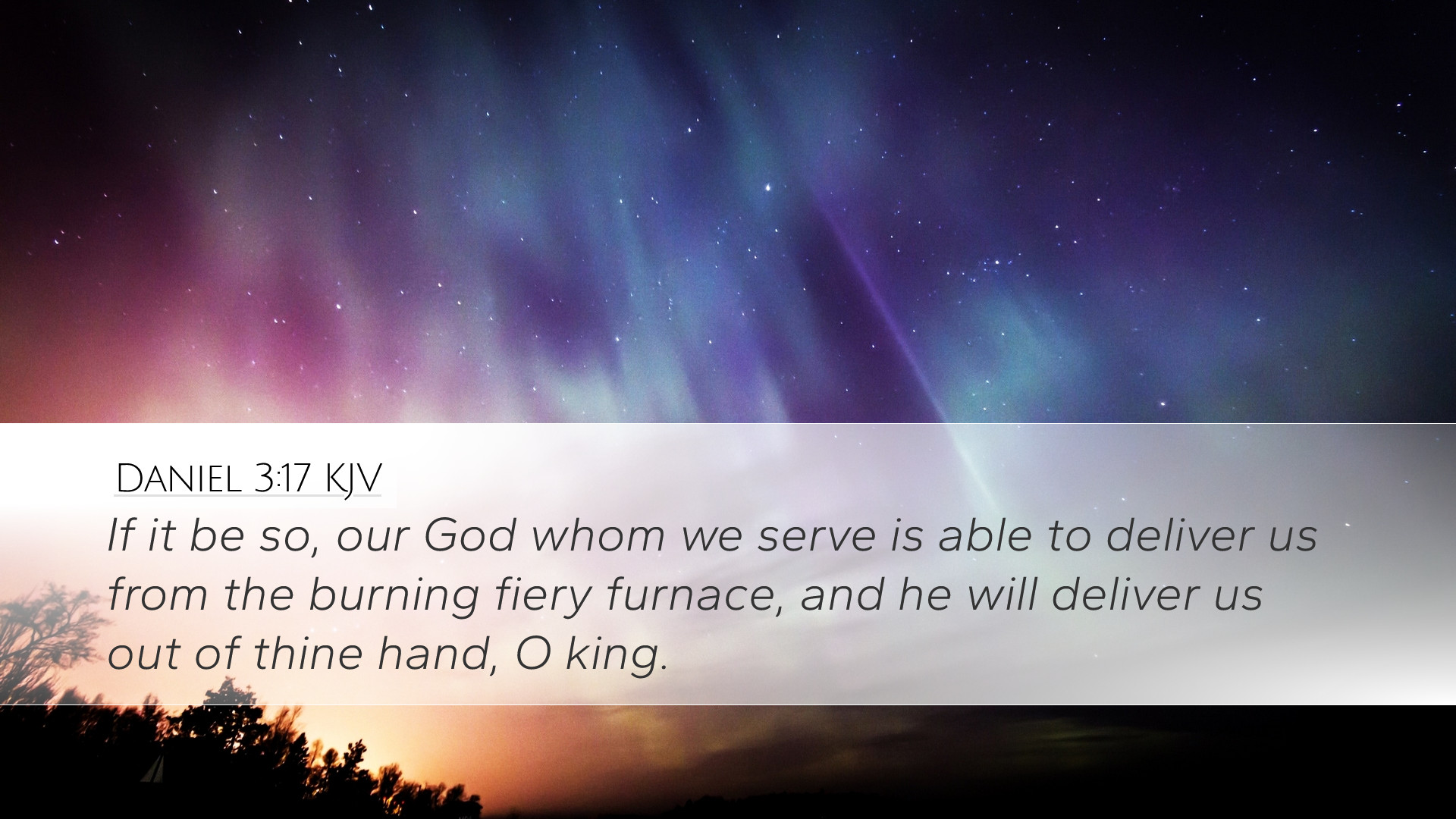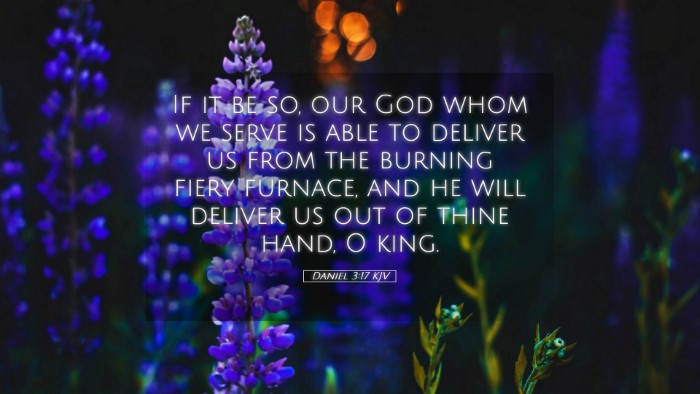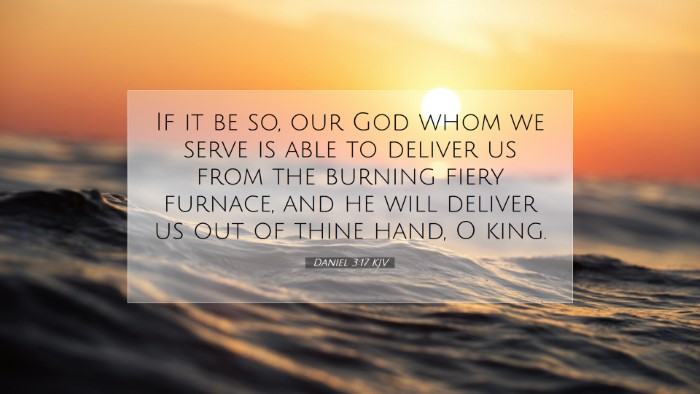Commentary on Daniel 3:17
Text of Daniel 3:17: "If it be so, our God whom we serve is able to deliver us from the burning fiery furnace; and he will deliver us out of thine hand, O king."
Introduction
The verse Daniel 3:17 captures a moment of profound faith expressed by Shadrach, Meshach, and Abednego in the face of imminent death. In this context, the young Hebrew men confront King Nebuchadnezzar's decree, which demands absolute allegiance to a golden image. This commentary strives to unpack the theological implications, historical context, and pastoral applications of this verse.
Theological Insights
In this powerful declaration, the fidelity of Shadrach, Meshach, and Abednego stands as a testament to their unwavering devotion to God, exemplifying several significant theological themes.
-
Faith in Divine Deliverance:
Matthew Henry emphasizes that their faith is not merely a passive hope but an active trust in God's sovereignty and ability to deliver them. Their declaration acknowledges God's power, which highlights the fundamental belief that He is capable of intervening in dire situations.
-
God's Sovereignty:
Albert Barnes points out that the verses reflect a keen understanding of God's control over all circumstances, even those involving life and death. The three men recognize that even in the face of a mighty king, God's authority remains supreme.
-
Unconditional Commitment:
Adam Clarke notes that their commitment to their faith does not hinge upon God's action but is based on their understanding of His nature and character. They assert that even if God does not deliver them, their allegiance will not waver.
Historical Context
To fully appreciate the weight of this verse, it is crucial to understand the historical backdrop. The Babylonian exile represented a critical period for the Hebrew people, marked by challenges to their identity and faith.
-
Cultural Pressures:
The fiery furnace symbolizes the intense pressure to conform to Babylonian culture and worship. The three Hebrews exemplify the struggle between pagan influences and faithfulness to Yahweh.
-
Political Authority:
In the broader context of Daniel 3, King Nebuchadnezzar's absolute power is evident. Shadrach, Meshach, and Abednego's defiance highlights the tension between earthly authority and divine allegiance, a recurring theme throughout Scripture.
Pastoral Applications
This verse contains profound implications for contemporary faith communities. It invites pastors and congregants to reflect on their own responses in the face of trials.
-
Encouragement in Trials:
The confidence displayed by Shadrach, Meshach, and Abednego may serve as a source of encouragement for believers facing their own 'fiery furnaces.' It is a reminder of the importance of faith in God's ability to deliver, regardless of the outcome.
-
Defining True Worship:
This passage compels a reevaluation of what it means to worship. Are believers willing to remain faithful in adversity, trusting in God's sovereignty, even when societal pressures are immense?
-
Modeling Faithfulness:
Leaders in ministry can draw from this narrative as a model for how to encourage faithfulness within their congregations. Teaching resilience and trust amidst adversity fosters stronger believers who are equipped to stand firm.
Conclusion
In summation, Daniel 3:17 serves as a monumental reminder of faith's power in the face of trials and tribulations. The insights drawn from public domain commentaries reveal the rich theological, historical, and pastoral layers contained within this verse. As believers reflect on these themes, they are encouraged to cultivate a faith that stands firm against the pressures of the world, rooted in the unwavering nature of God.


